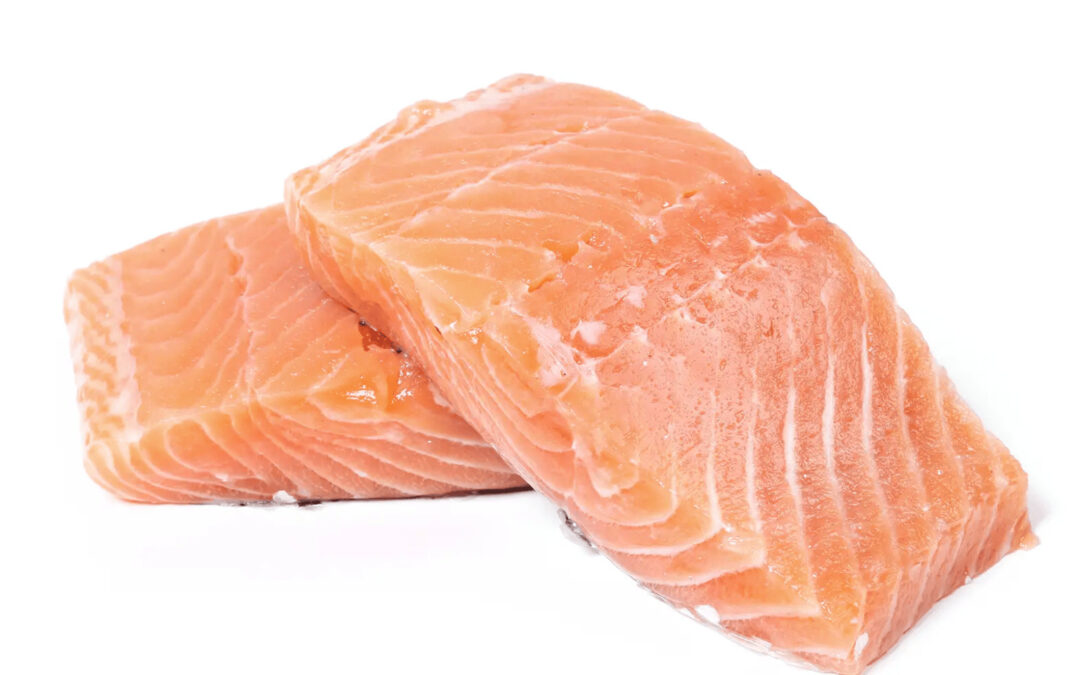Salmon is rich in omega-3s
Omega-3 fatty acids in the form of DHA (docosahexaenoic acid) and EPA (eicosapentaenoic acid) are one of the most important nutrients in this food. Pets do not have the enzymes necessary to convert omega-3 plant sources such as avocado, walnuts and flaxseed into DHA, so it is important to give them animal foods containing DHA and EPA, and salmon is an excellent option.
These healthy fats are recognized as essential elements in canine and feline diets, as they help maintain skin and fur health, modulate inflammation and promote heart health. If you do not consume enough omega-3, there is a risk of developing eye problems, arthritis, allergies and cognitive dysfunction.
Salmon contains a powerful antioxidant known as astaxanthin
Astaxanthin is an anti-inflammatory antioxidant found in this fish. This carotenoid, which is responsible for the pink color of salmon meat, is a powerful nutrient that has anticancer, antidiabetic and anti-inflammatory properties. It is a natural source of vitamin A that contributes to the growth and health of fish, is hundreds of times more powerful than vitamin E and 10 times more powerful than beta-carotene, lutein and zeaxanthin.
Salmon can replace other sources of protein
Its protein content can compete with that of beef: a 100-gram serving contains 19.8 grams of protein, which exceeds the 19.4 grams with which it has an equal portion of beef. Salmon is a highly recommended protein alternative for dogs that have an allergy to chicken and other common sources of protein.
In conclusion we can affirm that salmon is an excellent source of omega-3 fatty acids, which support the immune system, help decrease inflammation and keep your dog’s fur looking bright and healthy. It is also a good source of protein. In fact, salmon is a high-quality ingredient common in dog food. If your dog has an allergy to more common sources of protein, such as chicken, salmon could be a good alternative.
